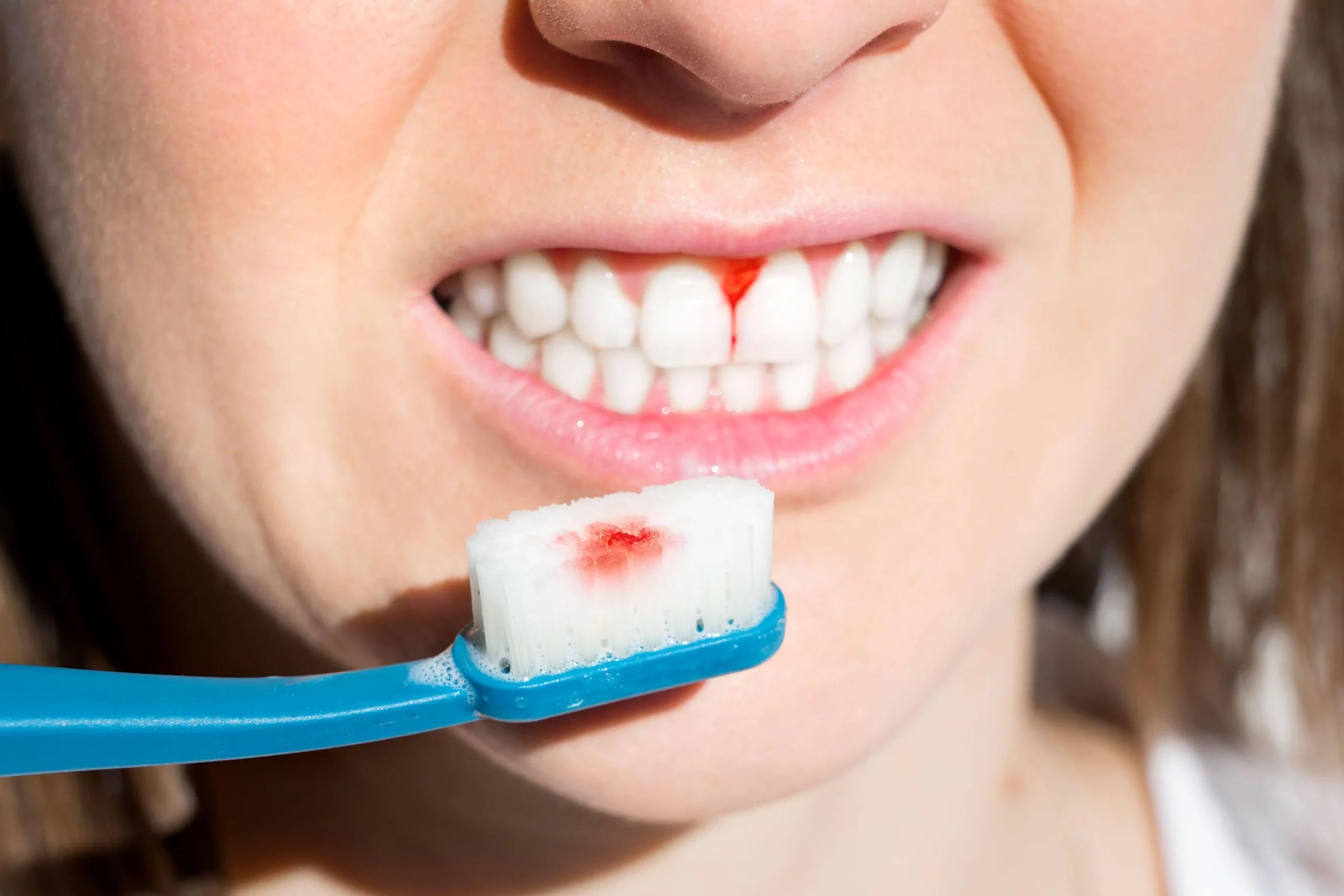How to Cure Gum Disease Without a Dentist -Natural Remedy
Gum disease, also known as periodontal disease, can be a painful and concerning condition. It’s characterized by inflammation, infection, and damage to the gums and supporting structures of the teeth.
While consulting a dentist is the best course of action for comprehensive treatment, there are several natural remedies and practices you can adopt to alleviate gum disease symptoms and promote oral health. In this article, we’ll explore how to cure gum disease without a dentist.

Natural Remedies and Tips to Cure Gum Disease Without a Dentist
1. Maintain Good Oral Hygiene
One of the most critical steps in managing gum disease at home is to maintain good oral hygiene. Regularly brushing your teeth with fluoride toothpaste and using dental floss can help remove plaque and food particles that contribute to gum disease.
To do this effectively:
- Brush your teeth at least twice a day, ideally after meals, using fluoride toothpaste.
- Use a soft-bristle toothbrush and gentle, circular motions to prevent gum irritation.
- Pay close attention to your gum line and make sure to brush your tongue as well.
- Floss daily to remove food particles and plaque between your teeth and along the gumline.
- Consider using an antimicrobial mouthwash to further reduce bacterial growth.
2. Saltwater Rinse
A simple and effective home remedy for gum disease is a saltwater rinse. Gargling with warm salt water can reduce inflammation and soothe sore gums. Over time, saltwater rinse has been known to reduce inflammation as well as sore gums.
To use this remedy:
- Dissolve half a teaspoon of salt in a glass of warm water.
- Gargle with the mixture for 30 seconds to a minute.
- Spit out the solution, and don’t rinse your mouth with plain water afterward.
- Repeat this process two to three times a day, especially after meals.
3. Oil Pulling
Oil pulling involves swishing a tablespoon of coconut oil or sesame oil in your mouth for 15-20 minutes. This ancient practice is believed to remove harmful bacteria and improve gum health.
Here’s how to do it:
- Take one tablespoon of organic coconut oil or sesame oil.
- Swish it around in your mouth for 15-20 minutes, being careful not to swallow any.
- Spit out the oil into a trash can (not the sink, as it can clog pipes).
- Rinse your mouth with warm water and brush your teeth as usual.
4. Aloe Vera Gel
Aloe vera’s natural anti-inflammatory and antimicrobial properties can help soothe inflamed gums. Applying aloe vera gel to your gums can provide relief and support healing.
How to do it:
- Apply a small amount of pure aloe vera gel directly to your gums.
- Gently massage it in with clean fingers or a soft toothbrush.
- Leave it on for a few minutes, then rinse your mouth with water.
5. Tea Tree Oil
Tea tree oil contains antibacterial properties that can be beneficial for gum disease. Dilute a few drops of tea tree oil in water and use it as a mouthwash.
To use this remedy:
- Mix a few drops of tea tree oil with water to dilute it.
- Use this solution as a mouthwash, swishing it in your mouth for 30 seconds.
- Spit out the mixture and do not swallow it.
- Be cautious not to use undiluted tea tree oil, as it can be harsh on your gums.
6. Diet and Nutrition
Eating a balanced diet rich in vitamins (particularly vitamin C), minerals, and antioxidants can help strengthen your immune system and promote gum health.
To help with your gum pain:
- Consume foods rich in vitamin C, such as citrus fruits, strawberries, and bell peppers, to support gum tissue health.
- Ensure an adequate intake of calcium, as it is essential for strong teeth and gums.
- Incorporate foods high in antioxidants like berries, spinach, and nuts to combat inflammation.
7. Stress Management
Chronic stress can weaken the immune system, making it harder for your body to fight gum disease. Incorporate stress management techniques like meditation, yoga, or deep breathing exercises into your routine.
- Practice stress-relief techniques like meditation, deep breathing, or yoga to reduce stress levels.
- Maintain a balanced work-life routine to minimize stressors in your daily life.
8. Proper Hydration
Staying adequately hydrated supports overall health, including gum health. Drinking plenty of water helps flush out toxins and promotes saliva production, which is crucial for oral health. In addition, reduce consumption of sugary or acidic beverages, as they can contribute to gum disease.
FAQs
Q: What is Gingivitis?
Gingivitis is a mild form of gum disease that is caused by plaque buildup. It can cause redness, swelling, and bleeding gums. In most cases, gingivitis can be cured with good oral hygiene and regular dental checkups.
Q: Can saltwater treat gum disease?
Saltwater can help to soothe inflamed gums and reduce plaque buildup, which can help to improve gum health. However, saltwater cannot cure gum disease on its own. If you have gum disease, you will need to see a dentist for professional treatment.
Q: What is the quickest way to get rid of gum disease?
There is no quick way to get rid of gum disease. Gum disease is a chronic condition that requires long-term treatment. The best way to get rid of gum disease is to see a dentist for professional treatment. However, with the above-listed home remedies, you are sure to get a soothing relief in your gum.
Conclusion
While these natural remedies and practices can help alleviate gum disease symptoms, it’s essential to remember that they are not a substitute for professional dental care. If you suspect you have gum disease or experience severe symptoms such as bleeding gums, persistent bad breath, or loose teeth, consult a dentist promptly. Combining home care with regular dental check-ups is the most effective way to ensure your gum health and maintain a healthy smile.




